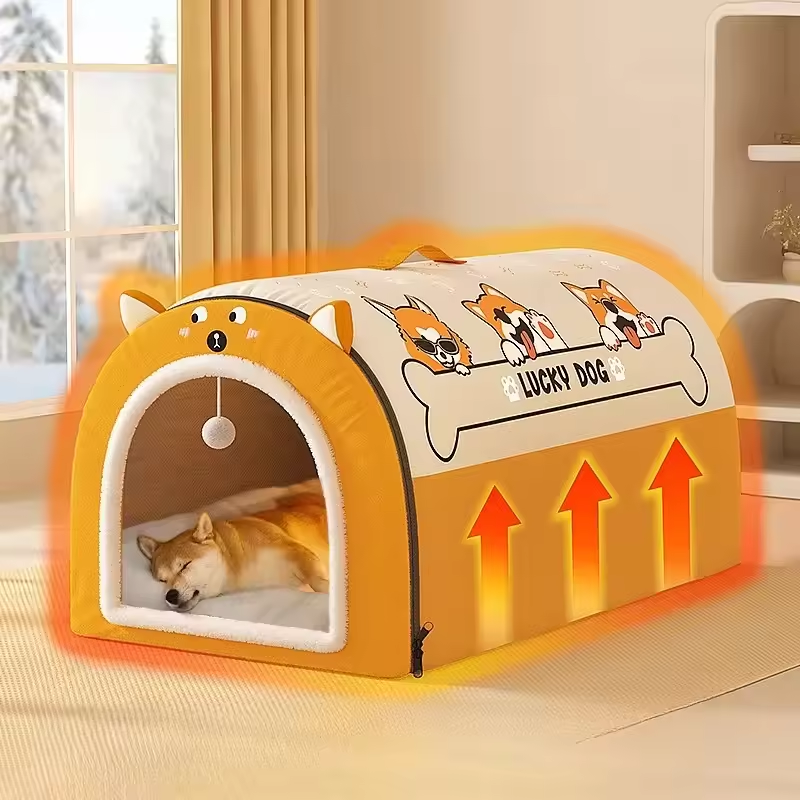What Is Kennel Cough in Dogs?
Kennel cough is a common illness in dogs. It is also called canine infectious tracheobronchial. Dogs catch it from other dogs, often in close-contact places like kennels. The illness affects the dog’s respiratory system. How contagious is kennel cough? It causes a dry, hacking cough that can sound like honking. Kennel cough is usually not deadly. It can be worse in puppies or dogs with weak immune systems. Symptoms include coughing, runny nose, fever, and less hunger. Dogs may seem tired and not like their usual selves. Treatment for kennel cough often includes rest and medicine. Isolation from other dogs is important to stop the spread. Most dogs will get better in a few weeks.

How Is Kennel Cough Transmitted?
Understanding how kennel cough spreads helps prevent outbreaks among dogs.
Understanding the Causes of Transmission
Kennel cough passes from dog to dog in several ways. It can spread through the air when dogs cough. Dogs also get it by touching infected surfaces. These include toys, bowls, and bedding. Close contact with sick dogs is often how healthy dogs catch it.
Viruses and bacteria cause kennel cough. These include canine parainfluenza and Bordetella bronchiseptica. Infected dogs release these germs into the air and onto objects. Other dogs breathe in the germs or touch contaminated surfaces and then lick their noses or eyes.
High-Risk Environments for Kennel Cough Spread
Places where dogs gather are hotspots for kennel cough. These include kennels, dog parks, and pet stores. Dog shows and grooming salons also pose high risks. Any space where dogs are close together can lead to rapid spread. To avoid this, keep a close eye on your dog in these places. Watch for signs that other dogs might be sick.
Owners should clean shared spaces often to prevent the spread. They should also wash their hands after touching dogs or their items. If you run a kennel or doggy daycare, make sure to follow strict hygiene rules. Require vaccinations for all dogs that enter your facility. This will help protect all the dogs in your care.
Symptoms of Kennel Cough in Dogs
Kennel cough has distinct symptoms in dogs that owners can spot. The cough itself is dry, harsh, and can be loud, sometimes sounding like a honk. Some describe it as if the dog has something caught in its throat. It can be set off by excitement or pressure from a collar. Dogs might also show signs like a runny nose, fever, and low energy. Appetite might decrease, and in more severe cases, breathing could become difficult.

Owners might see their dog gagging after coughing or notice a discharge after a coughing fit. These symptoms can vary slightly. Yet, they all point toward the dog having kennel cough. Few signs may be mild and easily overlooked, while others may be more pronounced. It is crucial to monitor dogs closely and take note of any changes in behavior or health. Any dog showing these signs should be kept away from other dogs and seen by a vet for advice.
Is Kennel Cough Contagious to Humans and Other Pets?
Kennel cough is a dog’s illness but knowing if it’s a human risk is key. Dogs often share this cough but it’s mostly dog-only. Rarely, it may jump to humans or cats, especially if they’re weak.
The Risks for Humans and Household Pets
Humans with weak health might get kennel cough, but it’s unusual. It’s not a big human threat. Cats can catch it from dogs but again, that’s rare. Cats at risk are often young or very ill.
When to Be Concerned About Cross-Species Transmission
If your immune system is not strong, be careful around dogs with kennel cough. The bug, Bordetella, is the rare link that might risk human health. Call a doctor if you’re sick and touched a dog with kennel cough.
Diagnosing Kennel Cough
Diagnosing kennel cough in dogs involves understanding the symptoms and assessing exposure risks. Veterinarians consider the recent history of the dog, such as contact with other dogs and visits to high-risk environments like kennels or dog parks.
The Process and Challenges of Diagnosis
Accurately diagnosing kennel cough can be challenging. Symptoms like coughing and sneezing are common to other illnesses too. There are no specific laboratory tests to confirm kennel cough alone. Vets often rely on the dog’s medical history and physical examination signs. They sometimes run additional tests to rule out diseases with similar symptoms such as pneumonia or canine influenza. This ensures the treatment plan is appropriate for the actual illness affecting the dog.
Treatment Options for Dogs with Kennel Cough
When your dog has kennel cough, knowing the right treatment makes a big difference. Mild cases often need simple care at home. More serious infections might need vet help.
Home Care and When to See a Vet
For a start, isolate your sick dog from others. This cuts the risk of spreading the illness. Give them a quiet place to rest and heal. Make sure they have lots of fresh water to sip on too. If your dog has a collar, switch to a harness. This will keep their throat less irritated when they walk.
A humidifier near their bed can help ease the coughing. But if the cough lasts over a week or gets worse, it’s time to see a vet. Watch your dog closely. If they stop eating, seem very tired, or cough a lot more, get vet help right away.

Medications and Therapies for Severe Cases
Vets may prescribe different treatments based on the dog’s needs. Some may suggest antibiotics to fend off more infections. Others might give cough suppressants to make your dog more comfortable. If your dog is very sick, they might need to stay at the vet for extra care. This could include fluid therapy or even oxygen. Always follow the vet’s advice to help your dog heal quickly and well.
Contagious Period and Isolation Practices
To manage kennel cough, isolation is critical. Understanding how long it’s contagious ensures you protect other dogs effectively.
How Long to Isolate an Infected Dog
Dogs with kennel cough can spread the infection for up to 14 days. Isolate your dog for this period, even after symptoms lessen. This prevents the spread to other dogs. Your vet can advise on the exact isolation length. It might vary with the severity of your dog’s case.
Best Practices to Prevent Spreading Kennel Cough
To stop kennel cough from spreading, follow these steps:
- Keep the sick dog apart from other dogs.
- Disinfect bowls, toys, and bedding regularly.
- Wash your hands after handling the infected dog.
- Avoid taking your sick dog to public places.
Isolation is not fun for your dog, but it’s essential for their health and other dogs’ safety. Stick to these best practices to help your dog recover and to protect your local dog community from a kennel cough outbreak.
Prevention and Vaccination Strategies
Preventing kennel cough involves several proactive steps. Vaccination plays a crucial role. Managing environmental factors also helps minimize risks.
Importance of Vaccination in Prevention
Vaccines are key in reducing the risk of kennel cough. They primarily protect against Bordetella bronchiseptica and canine parainfluenza. Most kennel facilities require a Bordetella vaccine. Though not foolproof, vaccines substantially lower the chances of infection.
Veterinarians usually recommend vaccination for dogs frequenting high-risk areas. These places include kennels, dog parks, and grooming salons. Consult your vet about the best vaccine options for your area. Remember, even vaccinated dogs can still contract kennel cough. Always observe and act on any signs of illness.
Beyond Vaccines: Additional Preventative Measures
Besides vaccination, there are additional steps to help prevent kennel cough. First, keep environments clean. Regularly disinfect toys, bowls, and surfaces in places where dogs gather. Good hygiene reduces the spread of the infection.
Limit your dog’s exposure to high-risk environments. If you notice sick dogs, keep your pet away from them. Strengthen your dog’s immune system with proper nutrition and regular exercise. Healthy dogs are less likely to get sick and recover faster if they do.
Finally, if kennel cough is prevalent in your area, consider alternatives to communal gathering spots. Arrange more controlled play dates or walks in less crowded areas. This reduces your dog’s risk of exposure to kennel cough.